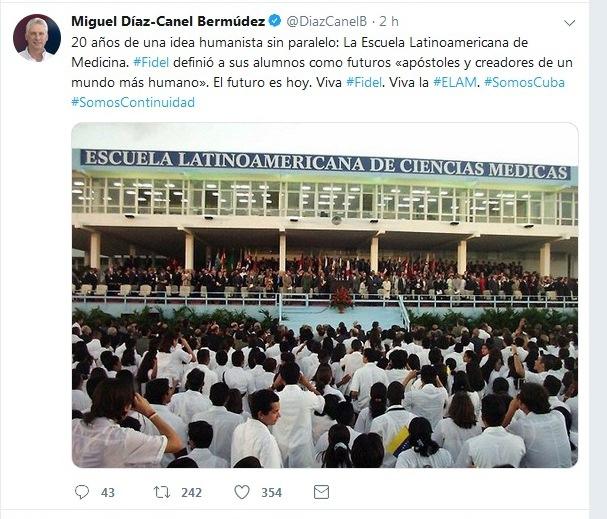Enquanto a ONU relata, ano a ano, dramático aumento nos assassinatos de civis no Afeganistão, e o Tribunal Penal Internacional (TPI) não avança na investigação de tais crimes pelo governo local, pelos terroristas e forças lideradas pelos EUA, Friba, representante da Associação Revolucionária das Mulheres do Afeganistão (RAWA, na sigla em inglês), afirma que os EUA destroem intencionalmente para oprimir, destruir e, assim, poder ampliar o dominio sobre seu país através do “uso desproporcional da força [que] só pode ser chamado de ataque intencional a civis”.
No Iraque, sobram evidências de ataques intencionais de militares estaunidenses sobre civis, em diversos casos divertindo-se excessivamente sobre as vítimas. Inclusive bebês têm sido vitimizados mortalmente pelos bombas humanitárias e inteligentes” dos xerifes do mundo, donos de ímpar duplo discurso (fotos, artigos e videos). Já no Afeganistão, soldados norte-americanos chegaram tiraram fotos de si mesmos divertindo-se e urinando sobre corpos de vitimas (fotos, artigos e videos). “Insegurança, guerra, assassinatos, tortura, violência contra as mulheres, pobreza, máfia, corrupção, desemprego, refugiados ou crise de imigração, drogas, tudo isso se faz presente com a ocupação norte-americana contra nosso povo”, denuncia Friba.
Em ambos os países, ataques contra crianças, inclusive por soldados em terra, acumulam-se impunemente através destes quase vinte anos anos de invasão para “combater o terror” segundo o regime de Washington, que jánão engana nem os mais mal-informados. “Guerra ao Terror” que, apenas em Iraque, Afeganistão e Paquistão sem contar outros invadidos e atacados pelo mesmo motivo pelos EUA, matou mais de 800 vezes (segundo dados mais conservadores) que os ataques do 11 de Setembro em solo norte-americano. “Esta realidade tem cobertura zero em todo o mundo e é doloroso como as pessoas têm uma imagem distorcida da guerra criminosa dos EUA no Afeganistão e em outros países”, reclama, na efervescente Cabul, a ativista afegã pelos direitos humanos.
“A vida dos afegãos não tem valor para os EUA”, inconforma-se Friba, quem não confia na justiça de organizações internacionais em seu país, assim como nenhuma outra membro da RAWA e a maioria de seus compatriotas. “A UNAMA, como a ONU em geral, é uma entidade dominada pelos EUA, pequena ferramenta em suas mãos para atividades imperialistas. O TPI ainda não superou esta impopular imagem”.
Nesta entrevista, a valente ativista afegã também especifica o interminável jogo de Tom & Jerry dos Estados Unidos-Taliban-Estado Islamita (EI) no tabuleiro de xadrez local. “O EI e o Taliban servem a um duplo propósito aos EUA no Afeganistão”, enquanto Friba observa que “hásegmentos do Taliban e do EI comprados e usados por Rússia, Irã e outros países, para seus próprios fins”. A velha Guerra Fria atualizada em território afegão. “Desde a Segunda Guerra Mundial, os EUA usam esses elementos sanguinários contra o comunismo, os elementos de esquerda e nacionalistas”, observa Friba.
Nas linhas a seguir, direto do Afeganistão a voz do povo afegão, o que a grande mídia de emburrecimento em massa não lhe conta – nem jamais contará.
***
Edu Montesanti: Enquanto a UNAMA [Missão de Assistência das Nações Unidas no Afeganistão] emitiu recentemente relatórios sobre o aumento dramático das mortes de civis no Afeganistão, cenário inalterado ano a ano, o Tribunal Penal Internacional está considerando investigar crimes cometidos no Afeganistão pelo governo local, pelo Taliban e por outras forças acontra o governo, e pelas forças lideradas pelos EUA.
Sua opinião sobre o TPI e a UNAMA, e diga quanto a RAWA está confiante de que os EUA serão levados a um tribunal internacional.
Friba: Por muitos anos, a RAWA esforça-se sobremaneira para processar os senhores da guerra, criminosos fundamentalistas, através do TPI e de outros tribunais, mas, como previa-se não se obteve nenhum resultado. Todos conhecemos a realidade desses organismos, que servem a agenda dos países imperialistas e não representam a justiça.
A UNAMA, como a ONU em geral, é uma entidade dominada pelos EUA, pequena ferramenta em suas mãos para atividades imperialistas. Por décadas, as vítimas das guerras e intervenções dos EUA revelaram essa amarga verdade sem esperanças nem expectativas em relação à ONU que, por um lado, persegue abertamente os rivais dos EUA em todo o mundo, mas por outro ignora os próprios crimes dos EUA.
Representantes afegãos nas Nações Unidas estão também vendedidos à CIA enquanto porta-vozes dos EUA, ampliando seus objetivos na ONU. Isso, sem mencionar a corrupção generalizada que atinge a ONU há anos.
Enquanto o passado vergonhoso da ONU é de um corpo pró-EUA, o TPI ainda não superou esta impopular imagem. As guerras atuais em Afeganistão, Iraque, Líbia e Síria também estão testando os fundamentos do ICC a fim de determinar se ele é um órgão imparcial que irá atrás de todos os criminosos de guerra, ou apenas um órgão pró-EUA que ignora os crimes cometidos pelos EUA, seus aliados e fantoches, como a ONU.
A recente decisão da procuradora-geral do TPI, de investigar os alegados crimes de guerra perpetrados pelas forças militares norte-americanas e pela CIA no Afeganistão, é um passo positivo apesar de muitos não acharem que a investigação trará nenhum resultado.
Edu Montesanti: Recentemente, conversamos sobre uma antiga estratégia imperialista, oprimir e destruir para dominar determinada região enquanto falávamos sobre o assassinato de civis nos EUA que aumenta ano a ano, desde a invasão a seu país em 2001. O TPI relatou que,
“Apesar dessas operações [ataques dos EUA] terem resultarado na baixa incidental da vida civil e em danos a civis, na maioria dos incidentes a informação disponível não fornece base razoável para acreditar que as forças militares não tinham como alvo a população civil como tal nem civis individualmente, que não participavam diretamente das hostilidades como objeto do ataque”.
Acredito firmemente, dados os fatos sobre esses assassinatos e as práticas dos EUA no Afeganistão e em todo o mundo ao longo da história, que pelo menos muitos desses crimes contra inocentes em seu país são intencionais para destruir e dominar o Afeganistão, além de ataques como consequência de ódio, discriminação, efeito de drogas entre militares dos EUA, soldados mentalmente doentes, vingança para a Bandeira Falsa que foi o 11 de Setembro…
Neste sentido, o que você acha dos assassinatos de civis no Afeganistão?
Friba: A vida dos afegãos não tem valor para os EUA. Concordo com todos os pontos acima mencionados: ódio, discriminação racista, desumanização, efeito de drogas, doença mental, vingança e, mais importante, dominar a região. No Iraque especialmente, acredito que eles bombardearam o país e torturaram e mataram pessoas para dominá-lo. O Afeganistão já foi destruído por 20 anos de guerra quando os EUA chegaram.
“Oprimir e destruir para dominar” é uma tática muito eficaz para dominar um país ou uma nação, conforme demonstrado recentemente pelos EUA em Iraque e Líbia. Um país desenvolvido com um governo independente nunca aceitará a dominação estrangeira. Dirigir um país que descende à pobreza e à devastação, com a completa obliteração da base econômica, da infra-estrutura básica e do sistema estatal, oprimirá o povo e destruirá o país ao ponto de quebrar a espinha dorsal da nação, e não resistir à nenhuma opressão.
Essa tática foi efetivamente implementada pelos lacaios jihadistas dos EUA durante as lutas internas entre 1992 e 1996, quando os mestres paquistaneses da Aliança do Norte ordenaram a destruição de todas as infra-estruturas básicas do país imediatamente depois que esses brutos jihadistas assumiram o poder.
Agora, depois de quase 20 anos de guerra, o povo afegão está muito cansado e privado de uma vida minimamente humana para buscar seus maiores desejos ao país, tais como como independência, liberdade, democracia e justiça social.
A maioria dos ataques dos EUA é realizada sem inteligência precisa e respeito às vidas de civis, resultando em massacres sangrentos por meio de ataques aéreos, ataques com drones, ataques noturnos e tiroteios por todo o Afeganistão.
Depois de todos esses anos, os EUA entendem muito bem as táticas de combate do Taliban: lutam ao estilo de guerrilha e imediatamente deixam uma área depois de realizar sua operação, deixando para trás civis inocentes que não têm para onde fugir. Bombardear uma área depois de uma operação taliban como essa, normalmente só tem como alvo civis inocentes. Esse padrão bem-conhecido tem sido ignorado pelos militares dos EUA. Em certos casos, todo um bairro ou pequena cidade foram bombardeados para atacar alguns poucos membros do Taliban, ou mesmo um único comandante taliban.
Esse uso desproporcional da força só pode ser chamado de ataque intencional a civis. Há evidências esmagadoras, na forma de admissão de membros do exército dos EUA e documentos vazados, enquanto The Intercept relatou que 90% das pessoas mortas em ataques de drones não eram seu alvo, que a maioria dos ataques que causaram a perda de vidas inocentes de maneira intencional ou altamente imprudente
A maioria das tropas estaduidenses e empreiteiros de empresas privadas enviados à Guerra do Afeganistão sofreram lavagem cerebral inflada de ódio contra os afegãos. Eles agem motivados por vingança pelo 11 de Setembro. Isso faz com que civis inocentes afegãos sejam presas fáceis para que eles cumpram o ódio doentio que possuem.
Há numerosos exemplos de ataques intencionais e de assassinatos contra inocentes por parte dessas tropas e empreiteiros no Afeganistão, bem como a outra vítima dos EUA, o Iraque, onde pessoas sãoo mortas, decapitadas e humilhadas por diversão. O infame “Kill Team” [Esquadrão da Morte] e o massacre de Panjwai [2012] são apenas dois incidentes expostos e investigados. Muitos incidentes, especialmente em ataques fracassados e ataques noturnos, não são investigados.
A consistência desses crimes de guerra não é surpreendente, já que os militares dos EUA evitaram investigações e processos de crimes de guerra no Afeganistão, fornecendo relatos falsos dos acontecimentos e protegeram as tropas envolvidas nos crimes. As tropas dos EUA também têm imunidade de processos judiciais no Afeganistão devido ao Acordo de Segurança Bilateral [Bilateral Security Agreement], assinado entre o traidor governo afegão e os EUA em 2014.
As investigações e processos realizados pelo próprio Exército dos EUA não podem ser justos e justos, razão pela qual as tropas norte-americanas culpadas de crimes escaparam da punição ou receberam um tapinha na mão pelos crimes hediondos. Essa imunidade incentiva as tropas e empreiteiros dos EUA a prosseguir com crimes sem se preocupar com as consequências nem ter receio da punição ou da responsabilização. É por isso que casamentos, hospitais e vilarejos densaente povoados continuam sendo atacados, fazendo com que pessoas inocentes morram.
Se falamos amplamente sobre intenção, os EUA nunca pretendem libertar nosso povo, restaurar a paz nem combater os terroristas em sua “Guerra ao Terror”, em primeiro lugar; e o fato de que essa guerra criminosa tem tirado a vida de milhares de mulheres, crianças e homens inocentes, os militares invasores não deveriam escapar de processos e condenações apenas porque os ataques não foram intencionais.
A discussão da “intenção” pode ser a resposta para as pessoas que perderam filhos e familiares, e estão buscando justiça? Com certeza, não. Isso vai contra o próprio conceito de justiça, de responsabilizar exércitos e governos por suas ações, para impedir a reincidência de tais crimes.
O TPI não deve enganar-se a si mesmo nem às pessoas de todo o mundo, fechando os olhos aos crimes de guerra simplesmente em defesa da “intenção”. Se o TPI é inflexível em favor da justiça, deve então tomar alguma medida concreta contra os crimes de guerra como contra o hospital de Kunduz [2015], o massacre de Balabuluk [2009], o massacre de Shindand[2008] e inúmeros outros que nem sequer foram denunciados e investigados.
Edu Montesanti: Diz-se, com fortes evidências, que as empresas norte-americanas têm extraído minerais de terras raras no Afeganistão: certamente, nenhuma nova notícia, Friba Jan…
Friba: Velha notícia, Edu Jan. Quando as tropas inglesas estiveram anos na província de Helmand, as pessoas relataram que aquelas desenterraram urânio e os transportaram secretamente para fora do Afeganistão por via aérea. Temos muitos relatos de tais sujos saques desses países.
Pós-2001, as tropas inglesas estiveram, principalmente, estacionadas naquela província ao sul durante anos. Não havia nem mesmo muita guerra e insegurança nem a presença do Taliban naquela época, portanto algo muito suspeito. Muitas dessas atividades suspeitas foram relatadas em todos os lugares.
Embora esses relatórios sejam úteis para denunciar a guerra dos EUA, utilizando suas próprias fontes contra eles mesmos, não acho que seja um retrato fiel do Afeganistão. Isso faz parecer que os EUA estão realmente lutando contra o terrorismo no Afeganistão, lutando de verdade contra o Taliban, e que essa corrupção é o único obstáculo. Apesar de que parte da corrupção seja verdadeira, e que muitos jovens soldados tenham sofrido uma lavagem cerebral para combater essa guerra, a verdade é que a maior política dos EUA na região não é combater o Taliban nem o EI, mas sim usá-los como ferramentas para seus ganhos. Tais relatos apenas enganam o povo dos EUA e do mundo, acreditando que esta é uma guerra “boa”.
Edu Montesanti: Como você descreve os 17 anos de ocupação do Afeganistão pelos EUA?
Friba: O principal interesse dos EUA no Afeganistão está em seu posicionamento geoestratégico.
As maiores bases militares dos EUA estão localizadas nas partes mais favoráveis geoestrategicamente do Afeganistão, eles podem colocar confortavelmente seus agentes, soldados e empreiteiros em qualquer número que desejar e realizar quaisquer ações, como testes de mísseis como o MOAB, e a pilhagem de recursos naturais.
Sem medo de processo nem responsabilização graças ao seu Estado fantoche, tudo para um propósito: manter seus atuais arqui-rivais – Rússia, China, Irã, e até certo ponto indianos – sob controle, manter sua esfera de influência na região e impedir que esses rivais desenvolvam mais influência na região.
A situação no Afeganistão é diferente das outras guerras atuais porque o Afeganistão está sob ocupação direta dos EUA, nenhum outro país está competindo com ele, e é dominado por todos os lados pelos mercenários fundamentalistas islamitas dos EUA, o governo fantoche afegão, o EI e o Taliban.
Naturalmente, a devastação de nosso país, política, social e economicamente, é resultado direto dessa ocupação e dominação. Nosso povo prova a guerra neocolonial de 17 anos dos EUA e os desastres que causa. Insegurança, guerra, assassinatos, tortura, violência contra as mulheres, pobreza, máfia, corrupção, desemprego, refugiados ou crise de imigração, drogas, tudo isso se faz presente com a ocupação norte-americana contra nosso povo.
Esta realidade tem cobertura zero em todo o mundo e é doloroso como as pessoas têm uma imagem distorcida da guerra criminosa dos EUA no Afeganistão e em outros países.
Edu Montesanti: Se no passado recente a RAWA teve que lutar contra três fortes inimigos, o governo fantoche afegão composto por antigos senhores da guerra, o Taliban e os militares dos EUA, agora o Estado Islamita une-se barbaramente à lista de inimigos locais – ou à lista para participar de um “processo de paz“…?
Especifique qual é o jogo sobre o tabuleiro afegão.
Friba: Nesta busca imperialista, nenhuma outra força serviu aos EUA melhor que seus parceiros mais leais e de longo prazo, seus mercenários fundamentalistas islamitas, incluindo os jihadistas no governo, e o Taliban e o EI.
Hoje, o EI e o Taliban servem a um duplo propósito aos EUA no Afeganistão: como procuradores [proxies] para atingir seus rivais, e como desculpa para justificar a Guerra Afegã em curso para os contribuintes e o mundo. Não é segredo que os EUA são criadores e fomentadores desses grupos criminosos, e os utilizam ativamente hoje como seus representantes no Afeganistão e em outros países.
Mas há segmentos do Taliban e do EI compradas e usadas pela Rússia e pelo Irã e outros países para seus próprios propósitos, o que significa que enquanto certos segmentos pró-EUA desses grupos são apoiados e protegidos pelos EUA, os outros são atacados e mortos.
Os EUA também têm ao seu dispor o Exército afegão e as milícias locais, altamente envolvidas em crimes hediondos desde sua criação, à medida em que eliminam os procuradores de seus rivais, o que aumenta a insegurança e a taxa de criminalidade nas áreas em que essas batalhas estão ocorrendo.
Esta guerra por procuração [proxy war] entre tais países é o que compõe as batalhas em curso, e o derramamento de sangue em todo o Afeganistão. É também nisso que a complexa guerra afegã se resume – uma luta de poder entre os EUA e seus rivais regionais.
Todo desenvolvimento, grande ou pequeno, toda mudança de política e estratégia adotada por todos esses atores, deve ser visto sob essa luz. As vítimas desta guerra e a consequente insegurança e derramamento de sangue, são os inocentes do Afeganistão.
Esta relação de amor e ódio entre os EUA e seus mercenários fundamentalistas islamitas, isto é, onde esses elementos os servem, os EUA os nutrem e os sustentam contra seus rivais e inimigos, e onde isso não acontece, os aniquila, existiu por toda a história, algo bem explicado por Robert Dreyfuss em Devil’s Game, e manifesta-se desta forma no Afeganistão hoje.
Os EUA não apenas criaram e apoiaram esses grupos fundamentalistas reacionários no Afeganistão, mas também em diferentes partes do mundo ao longo do século passado. Desde a Segunda Guerra Mundial, os EUA usam esses elementos sanguinários contra o comunismo, os elementos de esquerda e nacionalistas.
Mas os EUA só os utilizam instrumentalmente para atingir seus objetivos em um determinado país ou região, e depois os descartam como papel higiênico. Há alguns anos, os EUA criaram o EI para derrotar Bashar al-Assad, controlar o Iraque e atingir o Hezbollah, o que significa o Irã, na região; agora o EI não é mais útil no Oriente Médio devido à derrota dos EUA na guerra da Síria, por isso os estão bombardeando.
No entanto, o EI serve aos propósitos dos EUA atualmente no Afeganistão, de maneira observamos uma rápida ascensão do EI no Afeganistão; suas atividades, uma vez limitadas à província de Nangarhar, agora se espalham por todas as partes do Afeganistão, e alguns dos mais sangrentos atentados e massacres neste ano e no ano anterior foram realizados pelo EI em diferentes partes do Afeganistão, incluindo Cabul.
Este rápido surgimento do EI não seria possível, sem apoio e proteção dos EUA.
Edu Montesanti: Nós conversamos algumas semanas atrás sobre Wali Karzai, ativo da CIA que traficava drogas no Afeganistão. Wali é figura-chave para se entender o papel da CIA no Afeganistão, e sua morte em julho de 2011 parece ter sido algo para queimar um arquivo vivo contra a CIA, você não acha, Friba?
Friba: Temos informação exata sobre Wali Karzai. Nós sabemos tanto quanto a mídia noticiou.
No entanto, temos várias teorias, nada confirmado, por que ele poderia ter sido morto, e por quem. O mais provável é que foi alvo dos EUA, talvez por muitas razões ocultas mas, principalmente, porque os EUA têm muito cuidado em garantir que nenhum agente acumule poder demais em nenhuma parte do Afeganistão. Isto é especialmente verdade para senhores da guerra corruptos que podem se desviar de servir os EUA em sua busca de dinheiro e poder, inaceitável para os EUA. Observamos esta política dos EUA aqui.
Outra possibilidade é que ele foi simplesmente morto em conflitos internos, típicos da máfia.
De qualquer forma, fato é que ele esteva envolvido no tráfico de drogas, em lavagem de dinheiro, tinha um esquadrão da morte e, mais importante, constava na folha de pagamentos da CIA.
Edu Montesanti: Gulbuddin é outro melhor amigo do Tio Sam neste jogo por trás do domínio regional dos EUA – quem segue vivo e forte em seu país, respaldado pelo governo local e pelos Estados Unidos…
Friba: Gulbuddin Hekmatyar, senhor da guerra fundamentalista e beneficiário da mais alta ajuda dos EUA, tem sido alvo de todas as nossas denúncias a você, como exemplo de como os EUA ainda apoiam e dão poder aos terroristas fundamentalistas mais criminosos e traidores no Afeganistão.
Gulbuddin é um arqui-terrorista, e assassino de dezenas de revolucionários, intelectuais e nacionalistas, como discutimos detalhedamente em entrevistas anteriores.
A RAWA historicamente o expôs e condenou, e fomos perseguidos e assediados por seu partido criminoso por muitos anos no Paquistão.
Edu Montesanti: Fale um pouco mais sobre as origens da RAWA, e sobre o trabalho atual do movimento para concluir.
Friba: A RAWA iniciou atividades no Paquistão durante as guerras do Afeganistão dos anos 80 e 90, quando a situação era muito difícil para nós realizarmos as atividades.
Nos anos 80, o chamado regime comunista perseguiu intelectuais e ativistas, especialmente revolucionários e esquerdistas, lutando contra eles. Então, a guerra civil e o Taliban chegaram nos anos 90. Mesmo no Paquistão, a RAWA não estava segura pois nossa jovem líder Meena foi martirizada em Quetta, pelo sanguinário Gulbuddin Hekmatyar.
Nossas atividades ainda eram, em grande parte, realizadas no Afeganistão, mas na clandestinidade. RAWA tornou-se, logo, sinônimo de resistência contra a ocupação estrangeira, a ocupação soviética e uma luta feroz e implacável contra as espécies mais perigosas, os fundamentalistas islamitas da coleira de EUA, Paquistão, Arábia Saudita e Irã, que assumiram o poder em 1992.
Demonstrações e cerimônia no Paquistão, e trabalhamos extensivamente entre mulheres afegãs através de projetos sociais em campos de refugiados; nossas publicações foram distribuídas secretamente em todo o Afeganistão, e também tivemos atividades clandestinas para mulheres em todo o Afeganistão tais como cursos de alfabetização, e projetos de geração de renda.
Enquanto a RAWA foi formada para lutar pelos direitos e igualdade das mulheres, simplesmente acreditamos que essa meta é inatingível sem estarmos livres da ocupação e intervenção estrangeira, sem democracia, uma democracia real alcançada pela luta do povo e não pela zombaria que os EUA fazem dela desde 2001, mas com justiça social e secularismo. Este tem sido o lema da RAWA desde que foi formada, em 1977.
A RAWA voltou ao Afeganistão em 2001, após a relativa calma e continua operando em diferentes partes, mas clandestinamente. Nossos inimigos, os fundamentalistas, ainda são poderosos graças ao apoio do Ocidente, e ainda não podemos trabalhar abertamente. Não temos escritório oficial nem número de telefone, operamos sob diferentes nomes e nossos membros usam pseudônimos. A situação não mudou muito para nós e para movimentos semelhantes no Afeganistão.
inatingível sem liberdade, de ocupação / intervenção estrangeira, democracia, uma democracia real alcançada pela luta do povo e não a zombaria que os EUA fizeram dela desde 2001, justiça social e secularismo. Este tem sido o slogan da RAWA desde que foi formado em 1977.
A RAWA voltou para o Afeganistão em 2001, após a relativa calma e continua a operar em diferentes partes, mas no subsolo. Nossos inimigos, os fundamentalistas, ainda são poderosos graças ao apoio do Ocidente, e ainda não podemos trabalhar abertamente. Nós não temos um escritório oficial ou um número de telefone, operamos sob diferentes nomes e nossas membros usam pseudônimos. A situação não mudou muito para nós, nem para movimentos semelhantes no Afeganistão.





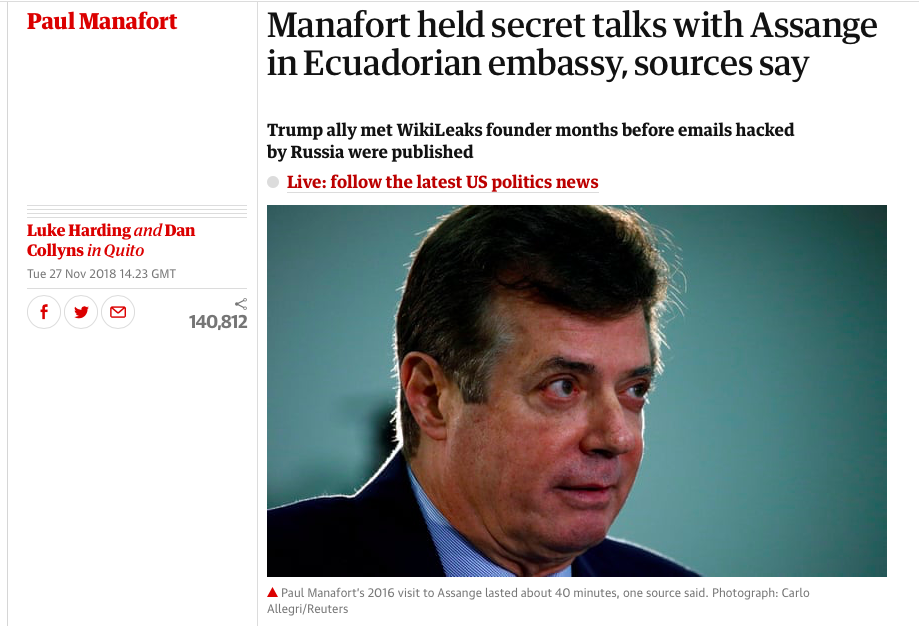




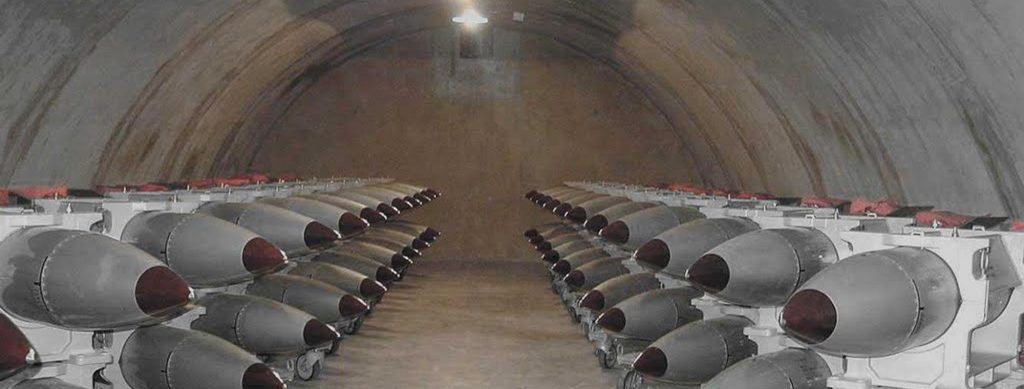








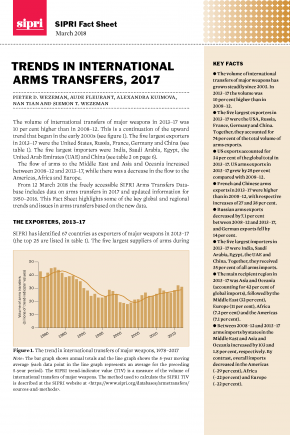
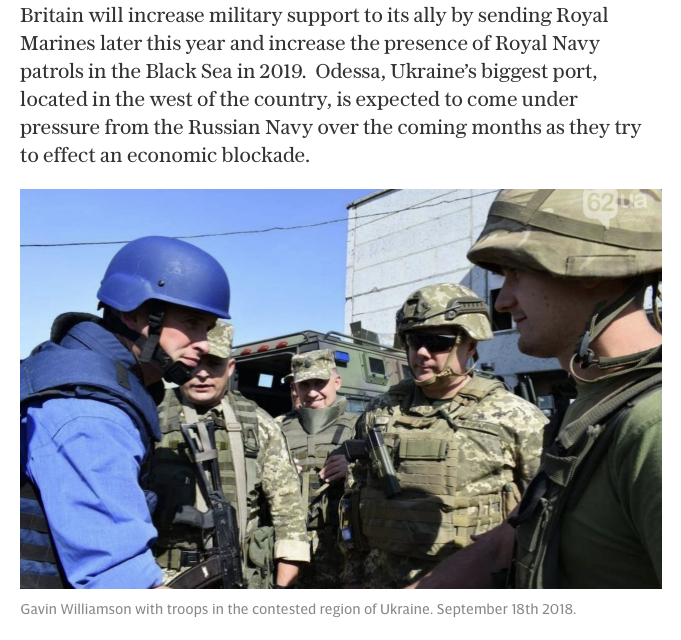



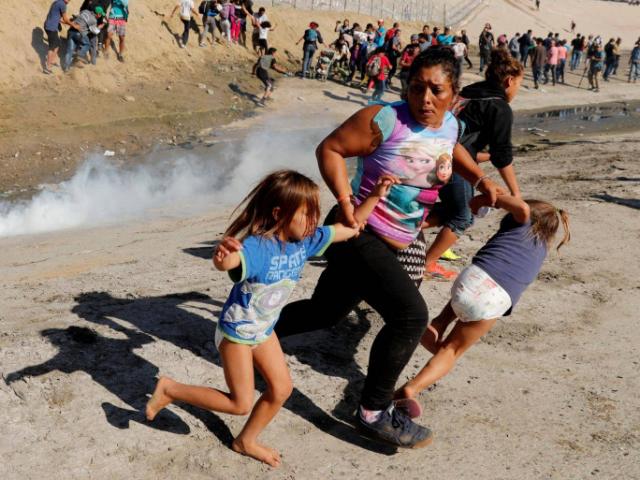


 All new members (annual basis) as well as all membership renewal (annual basis) will receive a FREE copy of
All new members (annual basis) as well as all membership renewal (annual basis) will receive a FREE copy of  lobal Research Monthly Membership – $9.50/month
lobal Research Monthly Membership – $9.50/month








